This article is reposted from the Duke Kunshan University Language and Culture Center Official WeChat Account. Click to read the original article.

Big Idea
This article covers Duke Kunshan University students’ frustrations with the compressed 7-week semester model. Driven by the “7-Week Sucks!” campaign, students and some faculty argue the system is exhausting, increases stress, and impedes deep learning and engagement especially for second-language learners. A survey of 103 students and 3 faculty shows most prefer alternatives like hybrid or 14-week formats. Critics cite frequent exams and rushed content, while supporters say it improves time management and memory retention. Faculty believe the original logistical rationale no longer applies, leading to calls for reform and greater focus on student well-being instead of covering material at breakneck speed.
A poster stands on the first floor of the community center, near Family Mart of Duke Kunshan University (DKU), advertising a hoodie with the phrase “7-Week Sucks!”. This merchandise campaign, released under the brand name HOMIES, features the hashtag #WeWantChange on the back of the hoodie.
HOMIES, a DKU student organization, collected comments of student frustration and talked with DKU officials in many ways to address concerns about the 7-week system. As no substantial action had been taken by the university, the organization said, they decided to start a campaign for broader support.

The 7-week system refers to DKU’s academic structure, where a traditional 14-week semester is divided into two 7-week sessions. Designed to promote innovative teaching and learning, the model also allowed flexibility for visiting Duke faculty to teach at DKU — a practice that in actuality has become obsolete, according to a number of faculty. In late April 2025, a 7-week system evaluation survey of 103 students and 3 faculty found that around 18% liked the 7-week system, 28% were neutral, and 54% disliked it. As differing perspectives emerge on the 7-week system, a broader conversation is underway to reassess the effectiveness of the current DKU academic structure.
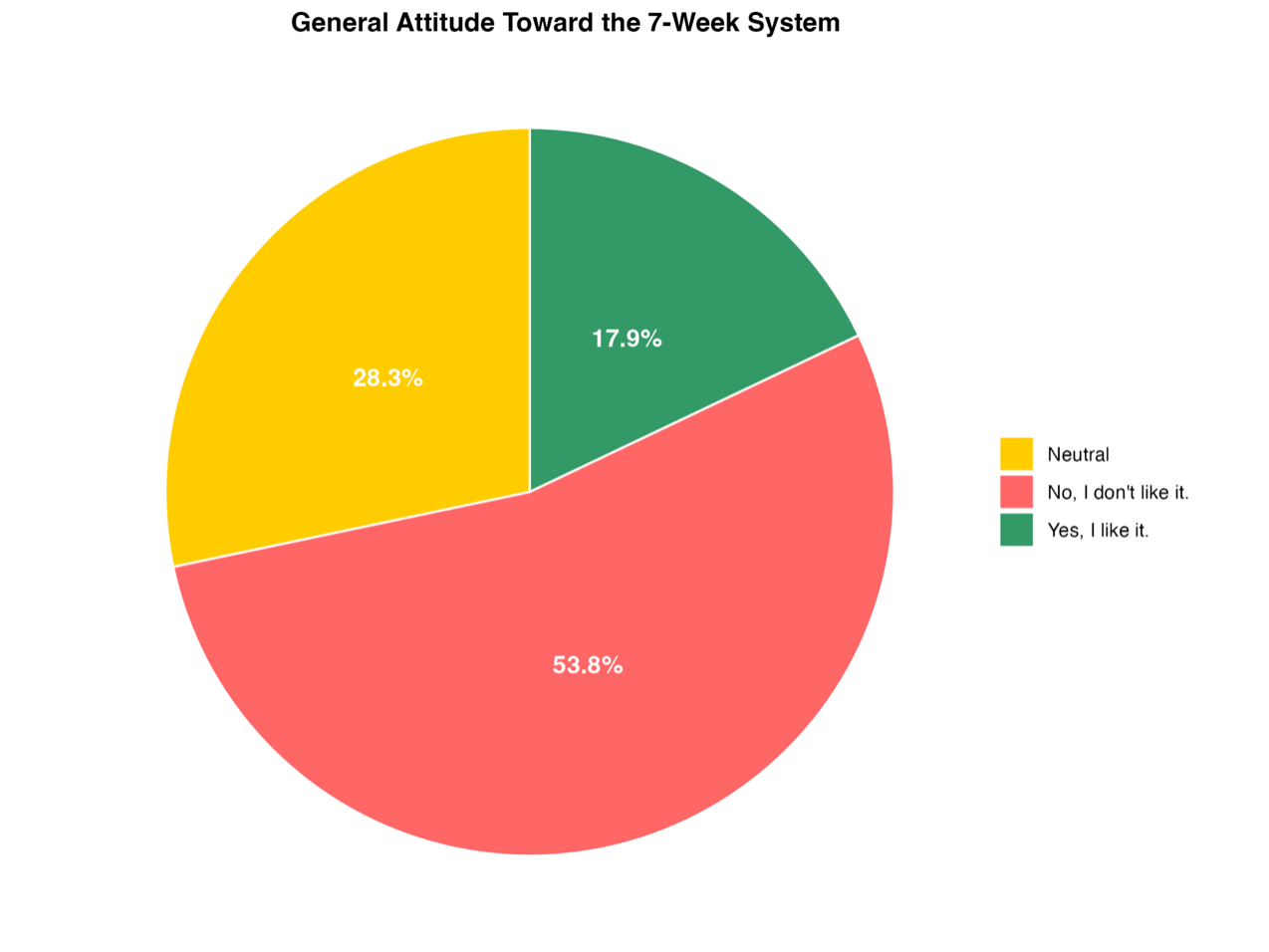
Student mental health concerns connected to the 7-week sessions have been widely discussed among students, faculty, and administrators. Nimo Yu, a recent graduate and former Resident Assistant, mentioned that students often feel exhausted and frequently sacrifice sleep and relaxation in order to manage the heavy workload.
This is echoed by survey results, which show that around 49% of students feel anxious, 69% feel stressed, and 61% feel exhausted. One student said in the survey, “I truly hate this system. I feel so burnt out. The one time I attempted to take 2 of my major required courses at once I cried every single day and became seriously sick.”
George Hu, Director of Counseling and Wellness Services at DKU, said that almost 100% of students who visited mentioned academic pressure and most of them directly referred to the 7-week academic schedule as a factor for their stress. “Not always the direct reason why they’re here, but just at least a factor, influencing why they are stressed, why they don’t feel good,” Hu said.
In addition to mental health concerns, DKU’s role as a young Sino-American university adds layers of complexity to its academic environment. Charlie Clausen, Assistant Dean of Student Affairs, pointed out that conservatively, up to 75 or 80% of DKU students have English as their second language. With everything taught in English, a lot of students face language barriers. Kolleen Guy, former Chair of the Division of Arts and Humanities, questioned the suitability of combining the intense 7-week system with second-language learners, “If for pedagogical reasons, I’d say give me the data. Where’s your data that second language learners thrive in 7-week sessions?”
Why has DKU adopted the 7-week system?
From a practical perspective, the 7-week system offered flexibility for Duke faculty to travel and teach at DKU. Guy explained the “Duke 32” graduation requirement, which mandates that students complete 32 credits taught by Duke faculty traveling to DKU. But students can now meet the requirement taught by the DKU professor with the “Duke Faculty” title, so the original practical rationale no longer applies.
“If it was 50 percent practical and 50 percent pedagogical, one 50 percent is gone. The practical reasons are gone,” Guy said. Ronen Plesser, Professor of Physics, who is a visiting professor from Duke, confirmed this shift. He said that only about 3 Duke professors are teaching at DKU now as part of the original “Duke 32” plan.
From a pedagogical perspective, the 7-week structure may improve academic performance, according to research. A study conducted by Edward Benoit III and colleagues, which compared 14-week and 7-week online terms for the Master of Library and Information Science (MLIS) degree at Louisiana State University (LSU Online), found that students in the accelerated 7-week program scored significantly higher on faculty‑assessed student learning outcome assessments, despite identical curricula.
Paul Stanley, Senior Lecturer in Physics and Associate Dean of Undergraduate Studies, supports the 7-week model, describing it as superior for both delivering knowledge and fostering student development. He argued that the 7-week format prompts students to revisit what they’ve learned more frequently, while the 14-week structure can encourage procrastination. “It doesn’t take students more time to process knowledge in 7 weeks than it does in 14. And in 14 weeks, students are more likely to procrastinate,” said Stanley.
Many faculty have raised concerns that the compressed schedule makes it challenging to design classes and projects that allow for meaningful engagement with the material. Plesser described the course design process as “innovation being replaced by compression” because the content of a 14-week course is presented rapidly in 7 weeks.
In the sciences, Plesser said, course design is often constrained by strict prerequisite chains both between and within courses. Designing courses at DKU to align with Duke’s curriculum, for students to take advanced courses during their visit to Duke, requires delivering the same content at twice the pace. This accelerated format leaves little room for students to fully absorb or master key concepts, he said.
Kaley Clements, Assistant Professor of Media and Arts, supports changes to the 7-week system. He said that students in creative Documentary Arts need enough time to explore different traditions in documentary, find a story, understand nuances in the subject matter, connect with related communities, learn the technocratic processes, and have time to reflect on the creative process. A noticeable weakness of the 7-week structure is it compresses the time of that process in half, he said.
For some students, the 7-week system offers opportunities to explore different fields and develop time management skills. An article titled In Defense of the Seven-Week Schedule in the Lily Pad, a student-led publication at DKU, argues that the 7-week system allows students to take a wider variety of courses, and further explore their academic interests. Chen Chen, an Economics student from the Class of 2028, said that while she dislikes the 7-week system, it helps develop time management and learning skills in preparation for graduate programs.
According to the survey, students pointed to intense teaching methods such as four exams in 7 weeks in math class, being taught an entirely new coding language in 6 days in statistics class and covering 300 slides weekly in Ecology class. Many, especially STEM students, cited a lack of time to absorb material, quick forgetting, and a heavy reliance on self-study. One student said in the survey, “I’m less than a month away from graduation and can confidently say that I learned absolutely nothing from this degree precisely because of the 7-week system.”
All of this feedback from students, faculty, and administrators have raised questions about whether the 7-week system is being carried out as originally intended, and its suitability for DKU.
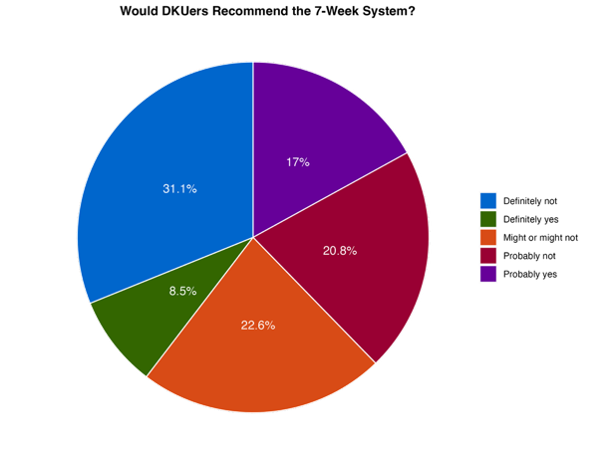
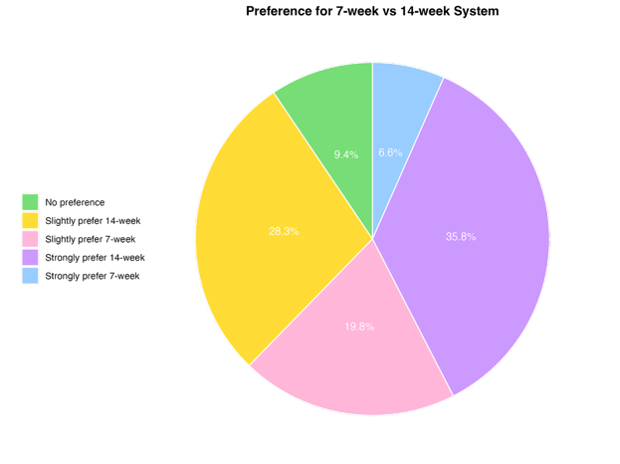
The survey shows that a majority of respondents prefer the 14-week structure, with around 36% strongly preferring it and around 20% slightly preferring it. Additionally, it indicates most would not recommend the 7-week system to future DKU students, as around 31% stating “definitely would not recommend it”, and around 21% “would probably not recommend it”.
Stanley questioned the prevalence of DKU courses that are taught in 2.5-hour sessions twice a week, rather than 1.25-hour sessions four times a week. He said that the strength of the 7-week system lies in providing students with more frequent opportunities to meet with their professors, which can lead to better engagement and memory retention.
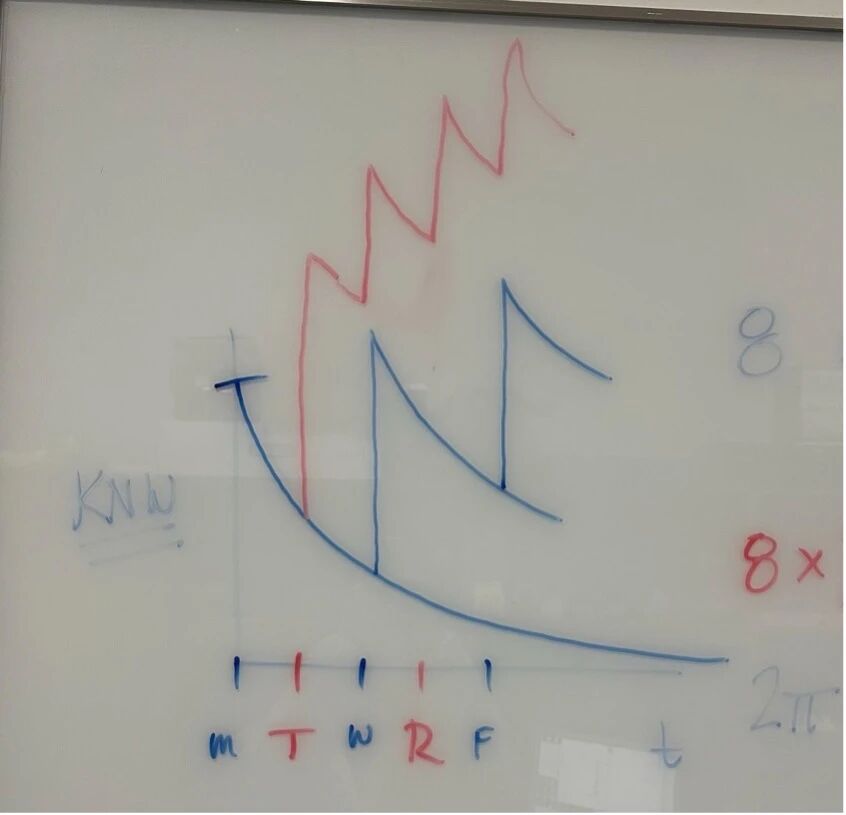
Beyond academics, many students noted that the fast-paced schedule leaves little room for extracurricular activities, job searching, or networking opportunities. “If we’re really trying to evaluate the 7-week sessions, I think it’s most appropriate for that not to be simply an academic assessment,” said Clausen.
Looking at the potential future evolution of DKU’s 7-week system, the survey indicates that around 48% of participants favor a hybrid model combining 7-week and 14-week formats. Meanwhile, around 25% prefer a return to the traditional 14-week system, and only around 11% support continuing with the 7-week model.
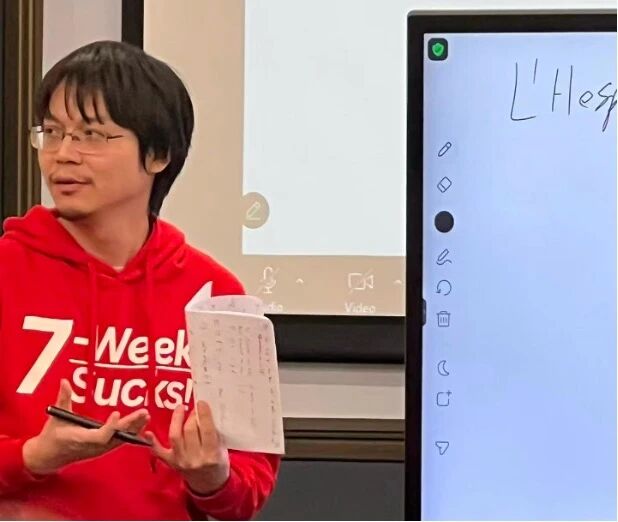
HOMIES stated that they have received more support than expected, not only from students but also from professors. They plan to continue their campaign unless changes are made to the 7-week system, with plans to expand their merchandise in various forms to further advocate for reforms. While Clements finds the language of the “7-Week Sucks” campaign abrasive, he is excited to see students finding their voice in calling for change. The main reason he supports changing the system, he said, is its impact on student mental health. “Students aren’t going to remember everything you try to teach them, but they’re going to remember how you make them feel.” said Clements.
Who are Chenxi, Tony and Rachel?
Authors’ bio
Chenxi (Helen)
Hello, my name is Chenxi (Helen). I’m from Behavior Science major, Class of 2025. I didn’t enjoy the seven-week system much. When I spotted the poster of “7-week Sucks!” hoodie and campaign, I immediately decided to dig out stories behind it. Based on our inquiry, we found that DKU is probably the only university that adopts a seven-week system in undergraduate studies. We are excited to learn that students and professors are taking actions to start a conversation about it. Looking forward to see where this would go in the future.

Tony
Hi, I’m Tony, a Digital Media major at Duke Kunshan University, Class of 2026. I really enjoy talking to people and learning about their experiences. My colleague and I interviewed students and professors about their thoughts on the 7-week system and wrote this news report based on those insights.

Rachel
Hi, I’m Rachel, an Economics major at Duke Kunshan University, Class of 2027. My colleagues and I hope this news report can serve as a bridge between the university and the students, helping both sides better understand each other’s perspectives on the 7-week system.
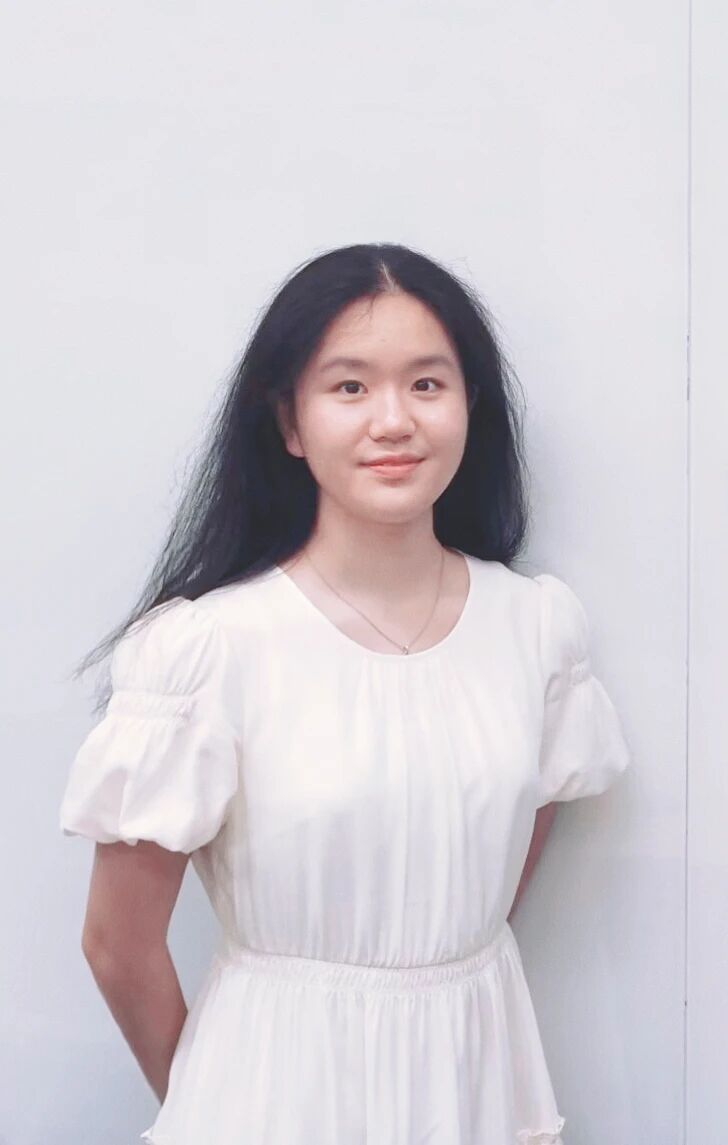
Editor|Sohan Mahmud
Layout|Yunhao Pan



